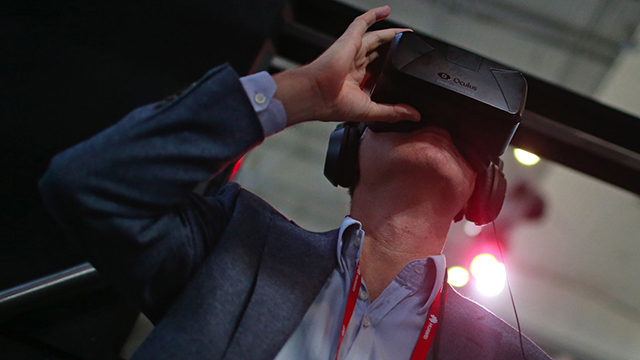Oculus reportedly planning to drop $200 standalone wireless headset in 2018
This seems significant, yo. Oculus is planning on dropping a relatively cheap fucking wireless standalone headset next year. Gone are the wires, gone is the need for a computer.
tech crunch:
Facebook is set to reveal a standalone Oculus virtual reality headset sometime later this year, Bloomberg reports, with a ship date of sometime in 2018. The headset will work without requiring a tethered PC or smartphone, according to the report, and will be branded with the Oculus name around the world, except in China, where it’ll carry Xiaomi trade dress and run some Xiaomi software as part of a partnership that extends to manufacturing plans for the device.
Wireless VR, and VR that doesn’t require any additional devices beyond a headset is a known goal for Facebook and Oculus, as Facebook CEO Mark Zuckerberg has previously discussed a mid-point category between entry-level smartphone-based VR as demonstrated by the Samsung Gear VR, and PC-based high-end VR like that found in the Oculus Rift and HTC Vive. HTC announced its intentions to build a standalone VR device based on Google’s Daydream platform earlier this year.
Samsung is also working on standalone VR, with reported “Odyssey” branding. Facebook has also said it’s working on wireless version of the Rift, with equivalent power to that device when tethered to a PC currently, as Bloomberg notes. This so-called “Santa Cruz” prototype is still in development, and Facebook is still working on its standalone inside/out environmental tracking efforts.
This new reported device, which bears the code-name “Pacific,” according to the report, will look like the Rift in terms of design but be lighter than the current Samsung Gear VR headset, and will be powered by a Snapdragon mobile processor with better graphics capabilities than the Gear VR, but without positional tracking like that made possible on the Rift via Oculus sensors.
The key ingredient here will be the balance of price and performance: Facebook will reportedly sell the headset for around $200, which could help it attract a much broader audience vs. the more expensive Rift (which is on sale for its lowest price ever at $399 currently, bundled with Touch controllers). Still, Oculus seems intent on continuing to support Rift and the PC, as well as its Gear VR partnership with Samsung, with the aim of reaching as many customers as possible with multiple approaches to VR.
The VR industry at large is still trying to find the right balance to make the technology more broadly attractive to consumers – the next target appears to be affordable, standalone units, and it’ll be interesting to see how the Oculus approach compares to Google’s plans for dedicated Daydream headsets.




